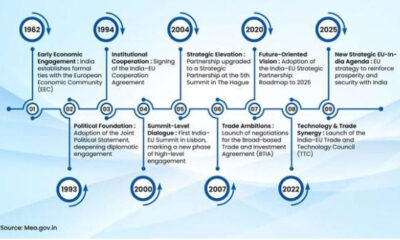Why Pakistan’s 48-Hour Strike Plan Collapsed in Just 8 Hours: General Chauhan Explains
Chief of Defence Staff (CDS) General Anil Chauhan has revealed key details surrounding the events of May 10, when Pakistan’s ambitious 48-hour strike plan against India collapsed within just eight hours. Speaking at Pune University on Tuesday, General Chauhan shared insights into the series of developments that forced Islamabad to seek a ceasefire much earlier than anticipated.
According to the General, Pakistan had launched multiple, well-coordinated attacks with the aim of bringing India “to its knees” within two days. “On May 10 at 1 a.m., their aim was to get India to its knees in 48 hours. Multiple attacks were launched. They escalated the conflict, which we had initially limited only to terror targets,” he said.
The Indian response came under the codename Operation Sindoor, launched on May 7 in retaliation for the Pahalgam terror attack. As part of the operation, India carried out precision strikes on nine terror camps located in Pakistan and Pakistan-occupied Kashmir (PoK). The strikes were specifically aimed at dismantling terror infrastructure and avoiding civilian or military escalation.
India had clearly communicated its intent to Pakistan after the strikes. “We had informed Pakistan on the day we launched the surgical strikes on May 7. When there was rhetoric from the Pakistani side, we also said that if Pakistan hits us, especially military establishments, we would respond harder,” said General Chauhan.
Despite the warning, Pakistan responded with drone and missile attacks targeting Indian border cities. These actions marked a significant escalation of the conflict, drawing a robust and immediate counter-response from India. However, what was intended by Islamabad to be a 48-hour offensive unravelled rapidly.
“Operations which they thought would continue for 48 hours folded up in about 8 hours. Then they picked up the telephone and said they wanted to talk,” General Chauhan revealed. He attributed Pakistan’s abrupt call for a ceasefire to heavy and unsustainable losses. “They were losing things faster and at long distances. They thought that if this continued any longer, they would be likely to lose even more.”
Following four days of hostilities marked by drone and missile exchanges, both sides agreed to a temporary ceasefire. The understanding, however, was brokered only after Pakistan contacted India, seeking a halt in operations.
Despite the cessation of hostilities, both the Indian military and the political leadership remain cautious. Prime Minister Narendra Modi has reiterated multiple times that the mission is not yet complete. Echoing this sentiment, General Chauhan emphasized, “Operation Sindoor is not over as yet. It continues. It’s a temporary cessation of hostilities. There is a need to keep our guard up.”
The remarks highlight India’s strategic preparedness and its shift toward a more assertive military doctrine in response to cross-border terror. General Chauhan’s disclosure not only underlines the success of Indian operations but also signals the country’s firm resolve in countering any future threats from across the border.
IT.




























